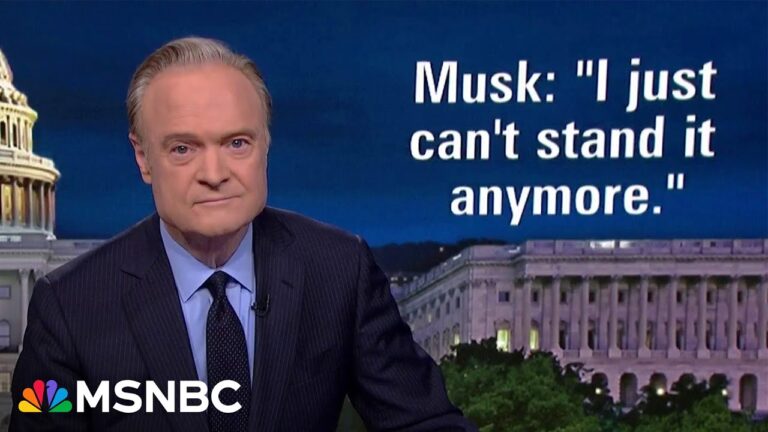Video at the bottom!
In a recent broadcast, a commentator discussed the fallout from Elon Musk’s interaction with Donald Trump during what appeared to be a potential farewell meeting in the Oval Office. The segment revealed tensions between Musk and Trump, spurred by reports suggesting Musk wanted to extend his role in a governmental capacity beyond an established 130-day limit, which the White House did not approve. Consequently, Musk’s frustration culminated in an explosive Twitter outburst where he declared, “I just can’t stand it anymore.”
The commentator emphasized Musk’s mental health struggles, referencing his past admissions of depression and use of various substances. This context served to illustrate the weight behind Musk’s statement and his apparent emotional state. The segment deftly linked Musk’s frustrations to a broader critique of Trump’s policies, particularly regarding a budget bill that Musk labeled a “disgusting abomination.”
The discussion transitioned into a historical analysis of wealth and responsibility, contrasting Musk’s actions with those of previous wealthy figures, specifically referencing John D. Rockefeller and the philanthropy associated with his legacy. In stark contrast, the commentator argued Musk has chosen a path that undermines humanitarian efforts, particularly in relation to famine relief efforts in impoverished regions that have been impacted by U.S. policy changes Musk was part of.
As the segment unfolded, attention turned to Musk’s subsequent comments that echoed the sentiments of Democratic critics of the budget bill, revealing an unexpected alignment with Democratic talking points against the Republicans. This alignment was significant as it marked a departure from Musk’s previous support for Trump’s agenda.
A notable exchange involved a Republican official expressing disappointment over Musk’s remarks, attempting to maintain that the budget bill was beneficial. The commentary concluded with implications regarding Musk’s potential influence in future elections, suggesting that Republican lawmakers might find themselves at odds with Musk if they do not align with his preferences moving forward.
Overall, the broadcast intricately wove together themes of power, influence, and accountability in the realm of politics and finance, drawing connections between individual actions and broader societal impacts.


